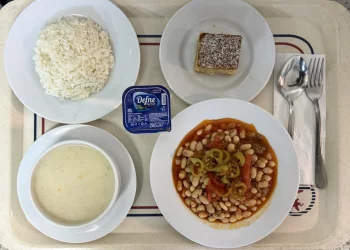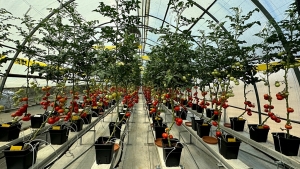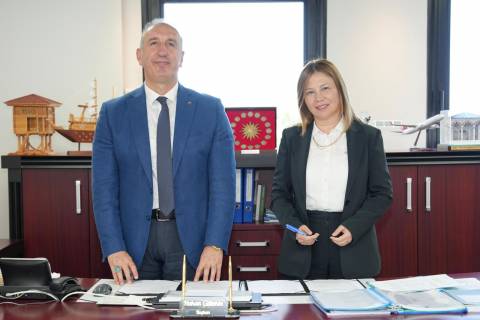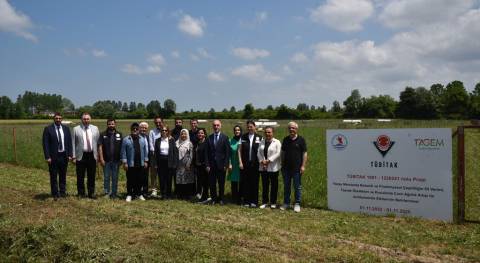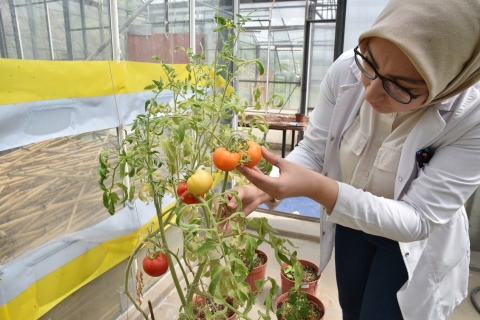OMU Researchers Develop Biofertilizer from Fish Waste, Enhancing Tomato Production
Researchers at Ondokuz Mayıs University (OMU) Faculty of Agriculture have successfully increased the yield of tomatoes grown through soilless farming using biofertilizer derived from Turkish salmon and anchovy waste.
The project, led by Assoc. Prof. Dr. Harun Özer from the Department of Horticulture, Vegetable Cultivation and Breeding, at OMU Faculty of Agriculture, aimed to explore the use of protein hydrolysates obtained from Turkish salmon and anchovy waste as a biostimulant in soilless tomato cultivation. The project, which focuses on environmental sustainability and promoting sustainable agricultural practices, has been recognized and supported by the Scientific and Technological Research Council of Turkey (TÜBİTAK).
As part of the project, waste from Turkish salmon and anchovies processed in fishmeal factories was converted into biofertilizers. This fertilizer was then used in the university's soilless farming greenhouse to observe its effects on tomato yield.
The research revealed that the biofertilizer derived from Turkish salmon and anchovy waste significantly improved both the quality and yield of tomatoes grown in a soilless environment.
Assoc. Prof. Dr. Harun Özer highlighted the importance of increasing vegetable production to meet the growing global demand for food. He emphasized the need to protect the environment and promote sustainable farming practices while increasing agricultural output. "There is significant input usage in soilless greenhouses, including intensive chemical fertilizers and pesticides. We aim to reduce these inputs in soilless farming and plan to reduce fertilizer use," Özer explained.
Samsun is a key fish production and export center, with substantial fish processing activities. However, waste from processed fish, particularly Turkish salmon and anchovies, often leads to environmental pollution. "We are even exporting Turkish salmon to Japan, but significant waste is generated from these fish, with 55-60% of the fish turning into waste. While some of this waste is used to produce fishmeal and animal feed, a significant portion is discarded, causing environmental harm and resulting in low-value products. We aim to transform this waste into high-value, eco-friendly, and sustainable fertilizer. So far, we have achieved highly successful results. We tested the hydrolysate obtained from Turkish salmon and anchovy waste on tomato cultivation, which accounts for nearly half of Turkey's vegetable production. The biofertilizer we developed has shown great promise as a commercial product, increasing yield and significantly improving fruit quality, including nutritional content beneficial to human health," Özer added.
The biofertilizer developed in this project is not only suitable for tomatoes but can also be used effectively on all fruits and vegetables grown through soilless farming. Özer noted, "Tomatoes were our starting point due to their widespread cultivation, but this biofertilizer can be used on a wide range of crops. Even leafy greens like parsley can yield successful results without the need for additional fertilizers. We are in the first year of this research, with the second year focusing on further studies and the patenting process. We are confident that this product will be commercially successful and expect strong demand from companies looking to market it."
Assoc. Prof. Dr. Koray Korkmaz from Ordu University Fatsa Faculty of Marine Sciences is also a key participant in this study.








